




13. #FiredUpStilettos: Standing Up for Sex Workers' Rights By Phoebe Robertson
16. Dangers from the Gym
Front Desk Bridget Scott
22. Your New Side Hustle: Bus Driving Ethan Rogacion
24. Lonely at Work Emily Payne
28. Aotearoa’s Shameful Narrative of 'Dole-Bludgers.' Kiran Patel
32. Ngāi Tauira
33. Dear Aunty Vic
About Us
Salient is published by, but remains editorially independent from, the Victoria University of Wellington Students’ Association (VUWSA). Salient is funded in part by VUWSA through the Student Services Levy. Salient is a member of the Aotearoa Student Press Association (ASPA).
The views expressed in Salient do not necessarily reflect those of the Editors, VUWSA, or the University.
Complaints regarding the material published in Salient should first be brought to the Editors in writing (editor@salient.org.nz).
If not satisfied with the response, complaints should be directed to the Media Council (info@mediacouncil.org.nz).
Find Us
Twitter: @salientmagazine
Facebook: fb.com/salientmagazine

Instagram: @salientgram
www.salient.org.nz
Salient Podcasts
Instagram: @salient_podcasts


It’s 10 a.m. on a Tuesday morning. You’ve just finished your morning shift at the part-time job that constantly rosters you on during university hours, and now have to boost it up from Lambton Quay to Kelburn Campus for the last two hours of your three hour (unrecorded) workshop. After that, it’s onto your freelance gig due the next morning, which takes priority over the 3000-word essay you haven’t started.
If you're reading Salient, this won’t be unfamiliar. Students gotta hustle, and hustle hard.
Kim K may have said no one wants to work anymore, but if she did a freaky Friday with a Wellington student, she would combust. We might have graduated now, but while we studied, we didn’t know anyone who wasn’t working 10-30+ hours on top of full time uni. Money (or lack thereof) is constantly on our minds. We require money to cover rent, bills, food, and the necessity of making our lives somewhat enjoyable. Student loan or allowance barely covers rent for most students, making work—and most likely a side hustle—unavoidable.
Alongside uni, we have respectively worked as a kitchen hand, retail assistant, bobarista, salon receptionist, waitress, event prep, podcast manager, social media manager, cashier, ID checker, fruit picker, NCEA tutor, lighting technician, biosecurity advocate, deckhand, office assistant, barhand, freelancing writer and photographer, staff writer, and paid and unpaid intern. Classic Capricorn placements, always hustling (Maia: Capricorn Mercury, Capricorn Rising, and Fran: Capricorn Sun and Mercury).
To make study liveable, we have to grind. The stress of evershifting priorities is real. What will you choose: work, study, or your social/love life? We take on the shittiest of part time jobs because we are desperate to eat something other than a cup of noodles. We work to fund study, and we study to find future jobs (if our BA can even find us a job above minimum wage). That’s capitalism, baby. Maybe it’s Maybelline, or maybe it’s the system.
Does uni have to be this way?
If study was better funded, we might escape the juggling act. Student loans and allowance should be enough to cover our living expenses. Fees free education was on the board not so long ago. Those starting uni in 2019, like Fran, were the first to receive fees free. At the time, we were hopeful that by the end it would all be wiped.
For now, I guess we keep hustling.
In this issue, Phoebe tackles what is making the Stilettos so Fired Up in her report of the Calendar Girls strikes. Bridget looks at the uncomfortable realities of students working gym receptionist jobs. Emily writes about the dilemma of facing customers on behalf of a disreputable brand. Kiran speaks to the stigmas around being a beneficiary.

The Salient News Team has done it again, with Zoë spilling the tea on the university’s deficit and the latest developments in the Vic Books saga. Niamh unpacks the recent teacher strikes, and Ethan chats with politicians about student allowance and loan living cost increases. Fran makes her news debut, reporting on vandalism on Scarborough Terrace.
Good luck hustlers! Slip, slop, slap, and slay.
To whom it may concern,
We are deeply concerned about the declining quality of the Salient crossword. From the lack of stars in the week one crossword making one of its clues completely nonsensical, to the week two crossword’s use of subjective opinions as objective clues, and the downright egregious use of words that simply do not exist in the New Zealand lexicon; for example, the use of “soda” as an answer when we all know that “fizzy” is the correct term. While we understand the new Salient team is still finding its feet, the Salient crossword is a staple of student life and we hope to see the crossword bounce back from its start-of-Tri slump along with the rest of the student body. In future, we are excited to see clues that are not unnecessarily ambiguous or opinionated, so that even hardshell taco enjoyers can engage meaningfully in the time-honoured art of crossword completion.
Yours truly,
Theatre students with nothing better to do.
P.S. Whoever writes the sudoku is doing great, keep it up!
Editors’ reply:
Got a problem with the Salient crossword? Try writing one and relieving our crossword writer who has been doing this for seven years unpaid. If you’ve got enough time to make a new email called concerned.theatre.students@gmail.com to send in a complaint about crosswords, you’ve got enough time to learn how to start writing them yourself.
Salient is looking for opinion pieces for our news section. Got a hot take about politics, current events, the university, VUWSA, or the possibility of VC Nic taking on Love Island AU? Send a pitch outlining what your opinion is to editor@salient.org.nz to make it into our opinion section!
27 March 2023
Te Herenga Waka Victoria University of Wellington has announced that the space left in the wake of Vic Books closure will be temporarily replaced by a partnership between The Lab and textbook supplier Campus Books for the remainder of the year.
The Lab will open from Monday, 3 April in the former Vic Books café space. Between 3-23 April, the bookstore area of the space will be closed for an internal fit out to prepare for the arrival of Campus Books. They will begin operations from the Kelburn campus from 24 April, the first day back after the mid-Trimester break.
VUW Acting Chief Operating Officer Simon Johnson says that a more “‘permanent solution”’ for the space will be decided on by Trimester 1 of the 2024 academic year. However, no decisions have been made as to whether a similar arrangement will take place at the Pipitea campus for the remainder of the year.
“At this stage, Campus Books is not opening a branch at the Pipitea campus,” a university spokesperson told Salient. “The university will work through permanent solutions for the space currently occupied by Vic Books over the next few months and will keep our community informed about any decisions.”
In an email sent to all staff, Johnson outlined the key operation dates and information regarding the two retailers. He said that the hybrid combination of the two retailers was chosen to “maintain the vibrancy of the Kelburn campus.” However, some are unimpressed, and say that this decision is not enough.
Professor Ali Knott, alongside other unnamed staff members, made a petition on change.org last month to push for a bookshop to remain in operation on Kelburn campus. Knott says that while it's a “‘relief”’ to see that the space will be partially occupied by the incoming

retailers, he believes that, “in these arrangements, there’s no provision for the general books that we currently see at Vic Books. And no provision for the flourishing ambience that comes from a cafe set amidst books, which we have enjoyed for many years.”
Campus Books currently provides textbooks to Waikato, Massey, and Lincoln universities, and will be the new official course materials and textbook retailer of VUW. The Lab, which currently runs two operations at Kelburn and Pipitea campuses, will open a third outlet at the university.
The Lab and Campus Books alone won't be large enough to fill the space. Johnson says that, with the surplus space, the university will “trial a range of flexible uses including front-facing student services, pop-ups, general book retail, or student space.”
“We are acutely aware of staff sentiment around the closure of Vic Books and the support many staff have expressed for an ongoing retail book operation. There is also support from many students for a convenience store operation,” Johnson wrote in the email. “We will continue to explore these, and other options, to see whether either or both of them might be viable options to consider further in 2024.”
Knott says that the hybrid model of a café and textbook store won’t fix the university’s need for a bookshop. “Universities need bookshops, and Vic Books has been the intellectual and cultural heart of the Kelburn campus for many years. As we see the books disappearing from its shelves in its closingdown sale, we’re newly aware of how important it is.”
“The overwhelming message is that a bookshop has a precious place at the heart of the Kelburn campus, and is something we should fight to retain,” he said.
The university is taking a “crisis approach” in an attempt to increase domestic enrolment numbers after extremely low enrolments in the past few years.
Documents leaked to Salient detail statistics regarding the decline in enrolment numbers, university debt, and the university's plan moving forward to increase enrollments. This information was presented to staff last week.
Total Domestic equivalent full-time students (EFTs) enrolled are currently at 13,524, down by 1463 students in comparison to this time last year. University accommodation is only at 92% occupancy. Total university (and VUW Foundation) losses from 2022 equate to $25.3 million, with closing debt sitting at a whopping $83 million at the end of 2022. The 2023 budget estimates that, by the end of the coming year, this debt will increase to $118 million.
The University is currently in the process of developing and adopting a new “EFT Growth Program” with
the hope of "improving our recruitment and retention activities”, “increas[ing] EFTs”, and “return[ing] us to sustainable financial footing”. The program will be sponsored by Vice Chancellor Nic Smith and led by multiple university leaders including Chief Operating Officer Simon Johnson. “Reversing [the] 2022 operating loss” is cited as a main challenge to the program.
“The past few years have seen the intersection of changes in student demand, the growth of new areas of study and the waning of others, demographic changes, unique economic conditions (i.e. low unemployment and growing cost of living), closed borders, and the broader impacts of Covid-19,” a university spokesperson told Salient in a statement.
“Responding to these changes requires a strong focus on student recruitment and retention. We have a range of plans and strategies underway this year, which are all being coordinated through a central programme of work. There will be opportunities for staff and students to contribute to this work,” they said.
On 17 March, Mt Victoria residents woke up to glass covered streets after a multi-vehicle vandalism attack on Scarborough Terrace.
The offender successfully pulled the stunt without setting off any car alarms, and no witnesses have come forward. The police confirmed they received “multiple” calls from victims, yet there was no consistency within the attack.
“I don't know why our street was targeted, everything's so random. Now, there’s glass on my backseat and everywhere on the street,” said Greta*, a VUW student.
Benji*, a recent graduate, told Salient the event has caused a stir on the street. “We’ve been double checking our locks ever since [...] I have a street-facing bedroom and I’m often woken up by noises outside, and I heard nothing,” he said.
Greta shared suspicion of the event. “The weirdest thing about it is the alarms didn't go off and no one heard.
Were they waiting for a stormy night?" she said. “I'm just worried this is going to happen again and if it's going to get increasingly worse or violent, or they come in[side our flats].”
Liz*, a Master's student at VUW, was suspicious as well. “The odd thing is they didn’t take anything. We were looking at the neighbours’ boot and they've got a fancy 3D printer and [the offender] just left it there,” she said.
Kenny*, a Weltec student, said the event has caused financial issues for residents. “I don't have insurance, [so] it's gonna be way harder to get it fixed,” they said.
“It was annoying because my insurance wanted to go through someone in the Hutt to get it fixed. I was like, ‘I'm not driving my car out on the motorway in this state,’” Liz said.
*names have been changed

 Words by Niamh Vaughan (she/her)
Words by Niamh Vaughan (she/her)
An estimated 50,000 teachers across the country stayed home from school on Thursday, 16 March as part of a national strike after failed negotiations between the Ministry of Education and the New Zealand Educational Institute Te Riu Roa (NZEI), the Teacher’s Union.
Current working conditions across the education sector are contributing to low teacher retention and overworked educators in an already understaffed workforce. Education Minister Jan Tinetti was booed during her speech on the steps of Parliament. Her voice was drowned out by chants of “walk the talk” and “do your job”.
The strike was an historic moment, being one of the biggest in NZ education history. It was also the first time, to Salient’s understanding, that so many different education sectors stood together to demonstrate their frustration at being underpaid and undervalued.
“There was a real sense of kotahitanga,” Catherine Vaughan, NZEI member and kindergarten teacher, said. “It’s the first time that I know of that [early childhood, primary, secondary, and area schools, as well as principals] have all had a strike alongside each other.”
The Ministry of Education denied almost all 16 of the kindergarten teachers’ claims. Amongst their concerns was the lack of units or funding for kaiako Māori to pursue learning opportunities for te reo Māori education. “There’s a lack of recognition for our kaiako Māori and the extra contribution they make for te reo Māori and ngā tikanga Māori,” Catherine said. “Learning conditions [of tamariki] are our working conditions!” The Ministry of Education did not offer recognition for kaiako Māori during negotiations.
Kindergarten teachers were also denied an increase to sick leave. They currently receive the legal minimum of 10 days, despite being in a high-risk position. “We’re exposed to a lot of germs [everyday],” says Catherine. “We were there [through] Covid.”
Due to a current lack of paid sick leave and relievers, teachers are forced to either take unpaid leave or go to work sick. “We were here for the country during the cyclones and flash floods. We were teaching through lockdown. We’re always here but not recognised for that. We’re not just here for children, but to support our communities and whānau as well,” Catherine stated.
“I just want to share my passion with the next generation,” said soon-to-be VUW graduate Jess, who will be undertaking a postgraduate degree in secondary teaching at Auckland University next year. Jess says she is of the position that, if we lose our teachers, we’ll lose our history and knowledge. Despite the strike, Jess has “no hesitations” about going into teaching. “I will 100% be joining the union,” she says.

“As a History major, I [understand the] importance.”
Catherine urges Salient readers that, “If you’re looking to get into this field, it’s so important to join your union. Unions advocate and bargain for you to get a better deal. [Teaching] is a really rewarding career and a lot of fun, and we want young people to continue to come into the field.”
As Catherine stated on the steps of Parliament on Thursday, “Tamariki are our taonga. We demand that they receive the best education and care.”
The Green Party are strongly in favour of the increase, but are calling on the government to be more radical. Chlöe Swarbrick said, “The only thing standing in Labour's way is their own shadow. If they want to alleviate student poverty they could tomorrow.”
Last week, the government announced a sweet treat for struggling students in the form of a $20 bump to weekly student loan and allowance payments.
The extra support is part of a cost of living package which will see beneficiaries, pensioners, and those who receive student loan and allowance getting a 7.2% rise in their payments to meet inflation.
“In a cost of living crisis, we can’t leave those on the lowest incomes and government support behind,” said Carmel Sepuloni, Social Development Minister.
Other political parties have been notably quiet about their stance on the policy. Salient did the rounds to show you, young voter, where each party stands on the extra support.
National’s finance spokesperson Nicola Willis said the party does support the increase, but says it is “very unlikely to make any students feel better off”.
“We accept that increasing student loans and allowances has been something that successive governments have done, and that we will do [if National gets into government].”
“We actually have to address the drivers of the cost of living crisis that is impacting students hugely. In particular, we identify housing costs [and] we want to stop the war on landlords,” Willis said.
Swarbrick said the government needs to implement a universal student allowance for all students of $375 per week. “Two thirds of students regularly cannot afford the basics,” she said. “While of course, we welcome an increase to the amount that is going towards students, it's really important to know that this is obviously not going to all students.”
Te Pāti Māori Co-Leader Debbie Ngarewa-Packer said, “We need a fair, liveable student allowance for all tertiary students that isn’t tied to their parents’ incomes.” Ngarewa-Packer called the $20 rise “an insult” to students and said the allowance “should be double what it is today”.

“A student’s job is to study. They shouldn’t have to sacrifice basic needs every day just to get by,” she said.
Salient also gave Winston Peters a ring for his two cents. Peters surprisingly picked up the phone, telling Salient that “$20 just doesn't cut it.”
“Education is not an expense, it's an investment. That's number one. It's clear as daylight… 20 bucks? 20 bucks does not pay for anything!” Peters said.

The Act Party refused to comment.
The change to student loan and allowance payments will be automatically implemented on 1 April. The weekly amount after the increase will be approximately $300 for students under 24-yearsold living away from home who receive the student loan living cost payments or the student allowance.
Two years ago, Te Herenga Waka promised to pay their staff a living wage. As we approach the release of the updated 2023 pay rate, the university’s promise still hangs in the balance.
In May 2021, then-Chief Operating Officer Mark Loveard fronted staff, students, and alumni in the Hub. He’d just heard the stories of a cleaner and security guard working at the university.
“We’ve made a commitment to pay the living wage. We are phasing it in over four years and we’re over half way there,” he reassured the crowd.
“The university isn’t an institution, it is the people. It’s the students, the academic staff, the professional staff. We are the community that is the university,” Loveard continued.
In his speech, Loveard beautifully articulated what the living wage movement is asking from THW and its new Vice-Chancellor Nic Smith.
Unfortunately, since May 2021, there has been little progress. Major groups of staff are set to be paid below a living wage this year. The 2023 recalculation will be announced on 3 April.
The living wage is independently calculated and reflects the minimum amount of pay workers need to live with dignity. Paying the living wage is a simple choice that employers can make to improve the lives of their employees.
Over 350 employers in Aotearoa currently do, from small to large businesses and organisations. Aotearoa’s entire banking sector, which employs more than 25,000 people, pays the living wage. It’s good for collective wellbeing and good for our economy.
In 2022, the living wage was set at $23.65, but due to increases in the cost of living, we are expecting this to increase significantly.
The living wage movement is urging THW to seek living wage accreditation, aligning itself with international universities like Oxford, Cambridge, and King's College London.
Accreditation means that all staff and contractors are paid the living wage. To maintain living wage accreditation, the university would have to continue to pay the living wage as it rises with the cost of living, securing its reputation as an ethical employer in the long-term.
Support for a living wage at THW is widespread, including among student rep groups such as VUWSA, the Tertiary Education Union and E Tū, many students, and alumni.
This support was on display on 15 March, when a hundred students gathered in the Hunter Lounge for a living wage panel, hosted by MP Chlöe Swarbrick. Panellists represented the breadth of knowledge within the living wage movement, and were appalled that THW allows staff to get by without fair pay.
THW is one of Wellington’s biggest employers, and a living wage is an opportunity to tangibly improve the quality of life of its staff. Raising the wages of its lowest-paid workers would also set a precedent for other New Zealand universities.
This would be in line with other living wage accredited public employers, such as the Wellington, Porirua, and Hutt City Councils.
Instead of kicking changes down the line on matters as crucial as fair pay for staff, the university’s leadership team has an opportunity to foster a community that lives up to the values it claims to represent: “respect, responsibility, fairness, integrity, and empathy.”
Mark Loveard said two years ago, “We’re committed [to paying a living wage] because we believe it’s the right thing to do, we believe that’s what our people want, what our community wants.”
William Bell-Purchas is the Co-President of Students 4 Living Wage. To get involved in making Te Herenga Waka Aotearoa’s first living wage university, email students@livingwage.org.nz
A post on the VuW: Meaningful Confessions Facebook page revealed a dirty side to the Law Student's Society’s recent wine and cheese night. The event, which took place at the glamorous waterfront venue Dockside, was rocked by a mystery defecator, leaving a sour taste in law students' mouths. The post read, “What I thought was a fart on the dancefloor quickly turned out worse,” and included details why the perpetrator’s “poo-covered” underwear were discarded in the women's toilets. Salient tried to reach out to the embarrassed pooper or anyone who smelt


In the same week that Salient reported on raw chicken being served in VUW catered halls of residence, Instagram page @kathyjcuisine posted a disturbing image showing nuggets of shattered glass which had been fished out of a meal. The post detailed two sizable chunks of glass beside what appeared to be beef mince on a resident’s plate. The words “literally not even a joke, just glass in someone’s food” and “how tf does this happen?” were written on the story posted to Instagram on 17 March.


I had to [reduce my hours] to help with uni, but it would have been nicer to keep working long hours cause I need the money to help with life.
It’s way too stressful for the amount of money they give you… Last year I had an hour long exam an hour before my shift started,and it was like a ten hour shift.
I have to skip uni to work… customers occasionally get very rude and very pushy, but that’s retail.
Yeah, it definitely does [affect study], but I can always pull through if I get a break next week.
 Words and Photo by Ben Kiriolo (he/him)
Words and Photo by Ben Kiriolo (he/him)
Last weekend, the Katayanagi Twins took the stage at Jim Beam Homegrown, travelling all the way from Avondale, Auckland. DJ Fine China and Rain have taken to the stage at some of Aotearoa’s biggest festivals, including FOMO, Festival X, Splore, Northern Bass, RNV, Bay Dreams, Homegrown, Plane Sailing, Britomart Block Party, and Le Currents. The pair take to the decks together and mix sick sets with insane chemistry. We sat down and talked about some of their influences.
I asked them if they could only listen to five artists for the rest of their lives, who would they be? All these artists are unique in their sound, as are the Twins. You can definitely see the genre-bending inspiration that is so essential to their act—blending all kinds of music so the whole crowd is on their feet grooving.
After some deliberation and about 20 honourable mentions, China made a crazy mix for a top five.
Deftones: Their number one pick needs no introduction, blending metal, alt-rock, and shoegaze. Deftones has been producing quality albums for nearly 30 years now.
Thundercat: His sound can be described as a neo-soul blend of jazz, funk, and soul. He has had a huge influence in the hip hop scene, working with artists such as Kendrick Lamar and Mac Miller, and has produced three incredible full-length solo projects.
SoFaygo: An emerging artist belonging to the ‘pluggnb’ scene—a unique subgenre of rap that blends R&B, trap, and hip hop that was born from SoundCloud. SoFaygo is a growing name in hip hop, along with similar pluggnb artists such as Destroy Lonely.
Flying Lotus: Flying Lotus is a Los Angeles-based producer that blends hip hop, electronic, and neo-soul jazz. Closely associated with Thundercat, Flying Lotus is another example of an artist that uniquely combines genre and sound.
Tame Impala: Needing no introduction to anyone who has listened to music in the past 5 years, the Australian multi-instrumentalist has been hugely successful with his unique sound that borrows from psychedelic rock, pop, and electronica.
As for Rain’s list of who she couldn’t live without:
Lancey Foux: The UK-based rapper's experimental, avant-garde sound has caught the attention of the Twins. His ability to blend different genres and push boundaries has surely inspired the duo to experiment with their sound and combine more UK sounds.
Frank Ocean: Frank Ocean's introspective lyrics and dreamy R&B sound have had a significant impact on the Twins' approach to mixing different genres of music. His ability to seamlessly blend elements of hip-hop, soul, and electronic music can be heard in the Twins' sets.
A$AP ANT: The Baltimore-based A$AP Mob rapper's trap sound is uniquely dreamy and melodic.
Pierce The Veil: The San Diego-based rock band boasts a signature mix of post-hardcore, pop punk, and metal.
Toro y Moi: Known for his chill electronic sound, Toro y Moi has collaborated with artists like Flume. Tracks like ‘The Difference’ definitely work crowds as the Twins travel New Zealand performing at festival after festival.
If you are looking for some new music to jam while walking up the hill to campus, check these artists out if you aren’t familiar with them! The Katayanagi Twins aren’t done after Homegrown. Just this week, they have been added to the Mardi Gras festival line up in Queenstown and Ohakune. Make sure to check them out on Instagram at @katayanagitwins. You didn’t hear from me, but they have a top secret announcement later this month!
Salient arts and culture reporter, Jamie Clumpas, took a brief break from raving to chat to one of Pōneke’s most prolific club and venue managers.
It’s 11.25 p.m. on Saturday in South Wairarapa, and 3500 people have descended on Tauherenikau Racecourse for 121 festival: a self-described “celebration of life, love, and the power of music and art.” While the bass is pumping and walls are rattling, it's the closest to a quiet moment I could get to sit down with festival director Tim Ward.
Tim has managed, founded, and owned numerous iconic Pōneke venues and clubs such as San Fran, Valhalla, Matterhorn, Club 121 and the Hunter Lounge.
Tim has witnessed a dwindling nightlife scene in Pōneke, and he doesn’t think that the council’s ever-tightening window of when clubs can sell booze has helped. 4 a.m. is the de-facto mandatory close time in Pōneke, as in recent years, all liquor licences in the capital have been issued until 4 a.m. at the latest.

“By limiting a particular deadline to hit for all licences to close, it’s a target practice that everyone works to hit. It gets people to binge drink up until that time because they’ve got limited time,” Tim said. “We lose the incentive for businesses to craft themselves into awesome experiences […] That’s what hospitality is about, not just trying to swing as much piss as possible in a short amount of time.”
Tim thinks that nightclubs need to be seen like cafés. Cafés open themselves up at times that make sense, “but nightclubs are crafted to go from 10 in the evening until midday the next day. That’s their business model, that’s what customers enjoy the most.” In his experience, “alcohol consumption is very low in those environments. It’s part of the experience, but the music and the lights are the crafted experience.”
Even so, Tim has seen some improvement with other changes to the law. “I don’t think we need to make alcohol more accessible, and in general, I see an improvement in staff assessment of people who are intoxicated compared to the early part of my career 25 years ago.” He said.
Once Tim returns from an unscheduled intermission dealing with a portaloo mishap, he turns his sights on offlicenses, or as students know them, liquor shops. “That’s where our focus needs to be in terms of future reform. More recent regulations have been centred around onlicence, while off-premises are the least regulated.”
This is a problem, he said, given that from 1986 to 2016, the proportion of all alcohol sold from off-licences went up from 59% to 75%. In parallel, pre-drinking has been on a steady rise. This is a proven contributor to rapid alcohol consumption, alcohol poisoning, and violence committed by overintoxicated people. Cheap and accessible off-licence drinks contribute to this, Tim said. “I think off-licences, particularly in a country like New Zealand, should be closed at certain times, but even certain days of the week. I think 90c per standard drink unit is too cheap… so there’s a gravitation towards pre-loading because of the pricing differential.”
Tim would make two simple changes to make town safer and more lively in the short term. Firstly, he would allow clubs flexibility to close when they get quiet. Secondly, he would disincentivise preloading by making it more expensive. “Alcohol in bars has become more and more expensive, but alcohol at off-licences has plateaued for years and years. Something has to change.”
As students, changes to alcohol licensing impact us greatly. With the general election coming up, we have one of our few chances to get a say. Maybe it’s time for us as students to start sticking up for town, ask the hard questions about how we tackle alcohol harm in this country, and see if the decisions at the top will have our — and our city’s — best interest in mind.
Words by Phoebe Robertson (she/her)
On 31 January 2023, 19 dancers were fired without notice from Calendar Girls Wellington. Why? For banding together to stand up for their rights and creating a movement in protest.
It began with an open letter to management. The letter, signed by 35 dancers, requested that management renegotiate the newly announced percentage reductions in their pay.
The #FiredUpStilettos movement has held two midnight protests at Te Aro Park and a pride march. Amassing over 4600 followers on Instagram and 1167 followers on Twitter, the issue has gained a tonne of traction, encouraging the wider public to appreciate and understand sex workers' rights. It provides us a unique look behind the closed doors of strip clubs in Aotearoa.
Calendar Girls Wellington’s dancers are not employees. Instead, they work as independent contractors for the venue. This means they get no hourly wage and no holiday leave entitlements. Independent contractors aren’t covered by most employment-related laws. In any legal matters, Calendar Girls’ dancers are not protected. The dancers earn no money from the door fee most strip clubs impose. Instead, they earn their money from customers' tips and private bookings (such as lap dances, private spas, and outcalls). The clubs take a cut of this hard earned money as well.
Prior to the firing in January 2023, the cut for private bookings at Calendar Girls Wellington was generalised by members of the Fired Up Stilettos to be 40-60%, with 60% of the money going to the dancers and 40% going to the club. The club also takes 20% of dancers’ tips that are given in their own
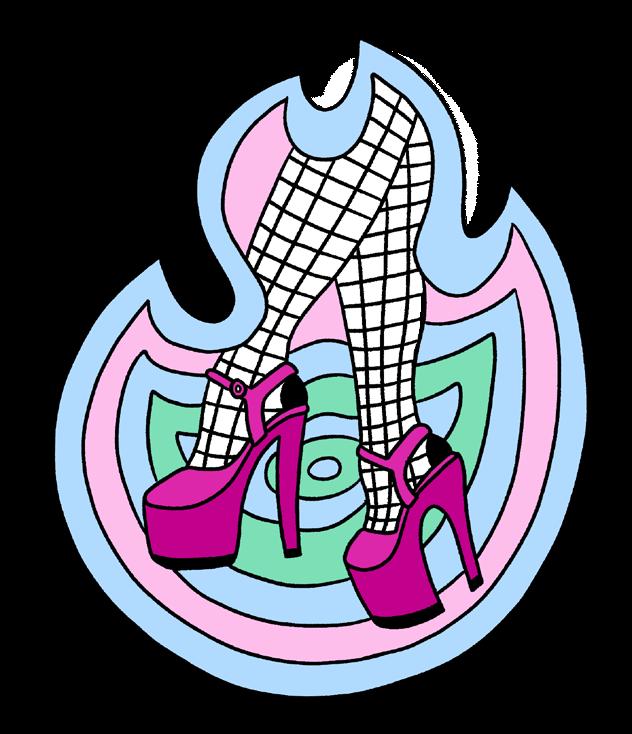
currency of Calendar Girls Dollars. Sadly, this is fairly standard for dancers in this industry, if not slightly better than other Wellington strip clubs.
So, why did things change? The short answer is: spa pools.
At the end of 2022, Calendar Girls management notified the dancers that all booking fees would be changed as spa pools were being installed at the venue. There was no new contract, and all of this significant information was communicated via word of mouth.
For example, it used to cost customers $100 for a 15-minute lap dance—$60 of this would go toward the dancer. Now, the same booking costs the customer $150, with only $75 going to the dancer (a 50-50% cut). Notably, these changes resulted in a 33% increase in price to the booking, which the dancers had to work hard to sell to the customer.
All of the booking fees have been increased and the cut given to dancers has decreased. Some of the payment cuts are as low as 39.6% to the dancer and 60.4% to the club. The largest cut dancers can have under the new arrangement is a 50% split between the dancer and the club.
The dancers took issue with this and wrote the open letter.
In response to the letter, a new contract was sent out by the management stating the pay changes that had already been made. All dancers were urged to sign it, but many refused.
The movement also critiques the contract’s clause around the use of fines by Calendar Girls management. Dancers could get fined for leaving a shift early, being ‘rude’ to customers, or spending too much time backstage.
The new contract also includes a fine of $250 for dancers who do not remove their thongs for their second song on a stage spot or tip round, and a $500 fee and 50% tip cut for dancers who are rude to staff. These fines are issued regardless of the staff or customers’ prior behaviour toward dancers.
I talked with Cowboy*, formerly a dancer at Calendar Girls Wellington. Cowboy said that the fines are not only unfair, but are also potentially dangerous. “Often when dancers are seen as being rude, [they] are standing up for [themselves] or asking people to tip the dancers for their performance.”
Cowboy explained that having these fines dangling over the dancers’ heads creates a dangerous situation for them, as they must debate whether standing up to harassment is worth losing a large portion of their tip-heavy income.
“Sex workers still deserve to be able to say no [and] create boundaries within their comfortability. Sex workers deserve basic rights,” said Cowboy. The fines create an unethical dilemma that complicates the dancers’ ability to say no.
After the new contract was set out, the 35 dancers escalated their letter, sending it straight to the owner of Calendar Girls Wellington. A day later, on 31 January, 19 of the dancers who signed this letter were fired via an online Facebook post telling them to clean out their lockers.
The dancers involved believed this post was intentionally ambiguous. When some of the dancers came in to collect their belongings the next day, they were told by the general manager that no one was fired, but they were also not allowed to work. The management, which has been described by dancers as “psychologically abusive”, promised to set up a meeting with the 19 dancers. This meeting never happened.
On 14 February, the Instagram page @19firedupstilettos went public with these payment cuts, contract changes, and unjust firings. The first protest run by the group was held on 18 February and attended by notable political figures, including Green Party MP Jan Logie. The protest was filled with colourful signs, chants, and music, and was attended by 60-70 people. Members of the Fired Up Stilettos erected a flagpole in Te Aro Park. Throughout the night, numerous members of the movement, as well as members of the public, took turns doing tricks and showcasing their abilities on the pole.
On 4 March, another protest was held at the same spot. It ran from 11 p.m.-1 a.m., at the peak of Pōneke nightlife, and had over 500 attendees. Protestors chanted “Calendar Girls exploits its workers”, “no bad whores, just bad laws”, and “tip them cash”.

The demographic of the protests was varied and inclusive, with a uniting desire to support the dancers. To your left there were pole performances, and to your right there were older women on camping chairs knitting.
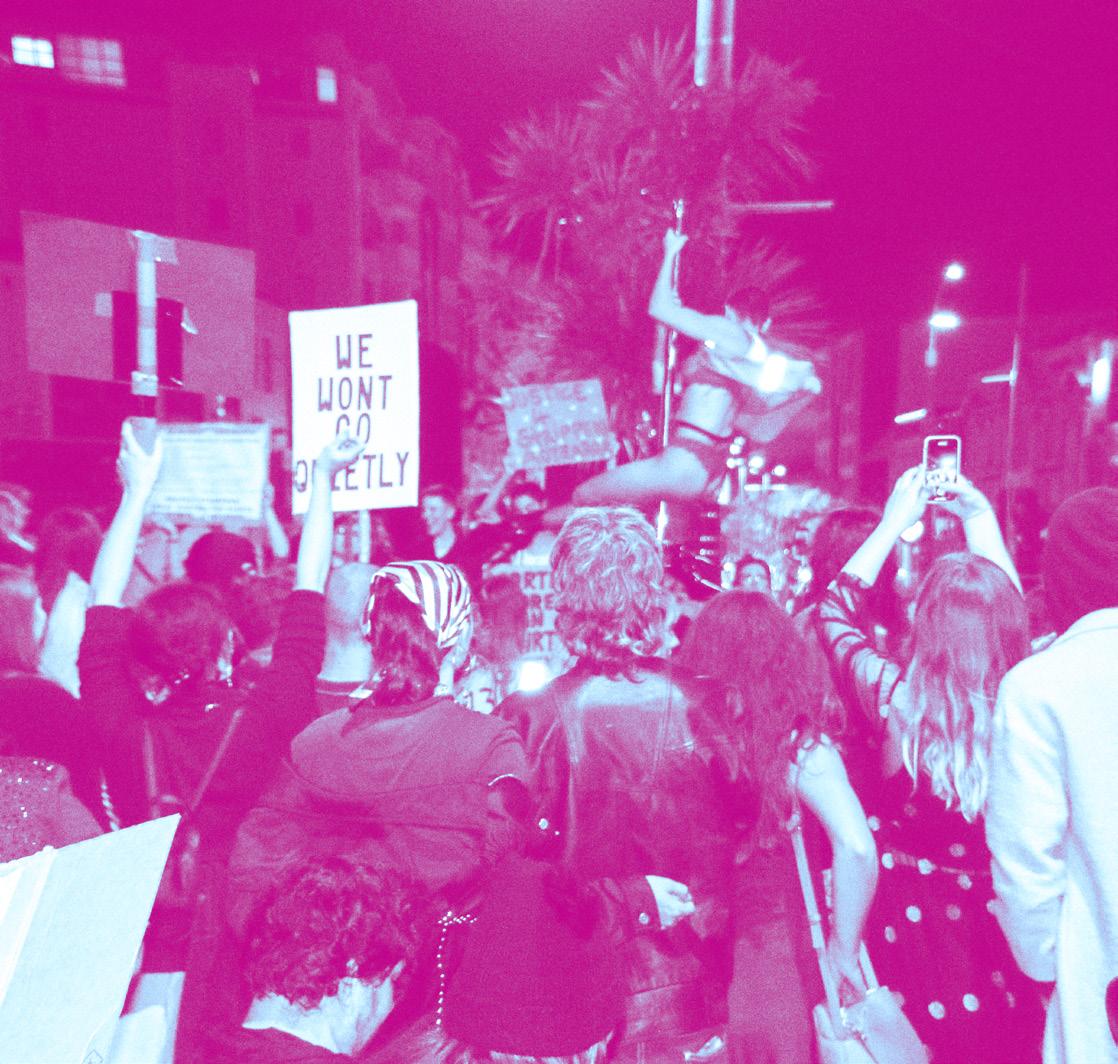
In a public statement released to the NZ Herald, Calendar Girls Wellington claimed that it had not changed its private dancer costs for 12 years. However, Bianca Beebe, a Fired Up Stilettos organiser, recalls the cut being 20-80% in favour of the dancers at Calendar Girls Wellington until at least 2015.
Cowboy explained that “[a] big fear for dancers that are still working, is that these clubs are gonna hire younger dancers who are seen as more malleable, [and more vulnerable to manipulation]. They won't have enough education or presence from dancers who have experience [with Calendar Girls and their previous pay agreements].” This was echoed by other dancers interviewed.
As explained to me by Bucket Hat*, another former dancer and a leader of Fired Up Stilettos, if all of the current dancers are replaced with impressionable young ones, they'll only know the new contract and guidelines. The 40-60% cut will be seen as an industry standard, and nothing will be done or changed. The high turnover rate for dancers means that the industry lacks a collective memory to hold these venues accountable. This shuts down any activist action before it even starts.
Bucket Hat further explained that the aim of Fired Up Stilettos is to “change what is happening
now so that it never happens again.” Despite losing their job at Calendar Girls, they’re hopeful for the future and the opportunity this movement has created to improve the rights of sex workers across the country.
Calendar Girls Wellington management to NZ Herald that the dancers could “reapply online”. The dancers state they were never told this, and the implication by the club has always been that they were fired and unable to continue working.
The next step for Fired Up Stilletos is petitioning Parliament to seek independent contractor protection and improved industry standards for NZ strip clubs. Their ultimate goal is the implementation of an official body that can vet out strip clubs and their contracts, further investigating individuals' complaints. This is the only way forward in creating safer work environments for strip club dancers.
Dancers don't want you to stop going to strip clubs. Instead, hold the management accountable for how they treat their workers. Tip dancers in cash so they don’t have to forfeit a percentage of pay during cash out. And if you’re unsure, go into a strip club yourself and directly ask the dancers how to support them and their art. Without dancers, there would be no clubs. This discrimination is extremely unjust.
To support the dancers, follow the @19firedupstilettos on Instagram and Twitter. There, you’ll find links for both the GoFundMe and petition to Parliament.
*names have been changed

Students have been struggling to find university-friendly part-time jobs for decades, and pressure has only increased as rent and the cOSt Of LIvInG CriSiS have spiralled out of control. It’s no wonder that Wellington’s gyms are filled with half-awake students chilling at the receptionist's desk—greeting clients, doing basic admin and some light cleaning work—in exchange for enough money to buy a case of beer and maybe some vegetables for the week. But the job is not as it seems; receptionist staff endure sexual harassment and verbal abuse while managing massive safety risks, with little training or support from management, in a male-dominated sporting environment.
June* spent two years working as a receptionist at a boutique Wellington gym—one that charged noticeably more for use of their facilities than name brand chains, and as a result attracted an older and more demanding client base. She describes spending hours at work maintaining a cheerful demeanour while members approached her, repeatedly making sexual comments about her smile, body, and potential workout routine. Despite initially brushing these off as irritating, but harmless, things continued to escalate.
One weekend evening, June was out at a bar in town when a member of the gym approached and cornered her away from her friends. He refused to leave her alone, making constant advances until she was made to feel “incredibly uncomfortable” and “as if I owed him something”. At the gym the following week, he approached her ostensibly for a yarn about what a great night it was. He asked, “Why don’t you look like that when you’re here?” and suggested that they should go out again and repeat the experience.
Fellow receptionist Kate* had similar experiences while employed at a national chain. Working in a gym located near a high school meant dealing with large groups of teenage boys. One group in particular thought it was funny to “bug” staff. This peaked when she discovered, after being warned by another gym goer and having it confirmed by CCTV, that the boys had been publicly rubbing their testicles against a piece of equipment stored behind the reception desk while intentionally engaging Kate in discussion. After learning about the exchange, Kate recalls being “grossed out” and resorting to hiding in the staff room until her shift was over.
But as June experienced, harassment doesn’t need to be sexual to be terrifying. She explains that her gym had a sauna, but access to towels added an extra charge for
membership. In an encounter before closing, one client insisted on entering the sauna and grabbing a towel, placing her in the position of politely informing him that he needed to pay the additional cost. June recalls that the gym member “had been aggressive with other staff members” in the past. This “bigger, older, guy” leaned over the desk to yell and scream at her, until she was at the point of tears and “terrified” that he would hurt her.
After relenting, and letting him take the towel, June called her manager “literally in the middle of a panic attack”. She knew he would be in the sauna till closing time, she was alone, and she would have to kick him out in order to lock up and head home. When he eventually emerged, he yelled some more before gruffly apologising and leaving. June describes the experience as “one of the worst feelings in the world” as he stood over her and she “didn’t know what would happen. Your mind goes everywhere, and can’t help but freak out.” The man kept his membership and faced no repercussions, despite having a minimum of five formal complaints laid against him. June had such little faith in management’s ability to protect her going forward that she resigned two days later.
Kate’s situation was handled differently. When she reported the teenage boys' behaviour to her manager, the boys were called into the staff office, issued a final warning, and told their membership would be revoked if they continued to behave inappropriately.
This is common at the large-scale chain gym Kate worked at. She explained that management had a greater mandate to issue warnings to those goofing off, regularly terminated memberships of those who behave badly, and in extreme cases, issued trespass notices. Notably, these are much easier to enforce when gyms are located in malls or other populated areas that are more likely to have onsite security connections than independent boutique outlets.
Kate points out that the relationship between a gym receptionist and gym goer differs from a regular retail position. Receptionists are encouraged to create a friendly, welcoming environment, and many interact with hundreds of clients every shift. In a male-dominated environment, this can create a one-sided relationship where clients feel entitled to the receptionist’s time and energy, even once they’ve clocked off.
As a cis white dude, John* hasn’t experienced harassment at the independent Wellington gym where he works. But he is concerned about the health and safety expectations that untrained receptionists are expected to shoulder. Older people and retirees frequent the gym he works at to play high intensity sports onsite. In the evenings, John is the sole person there ensuring patrons safety—with no professional development experience in first aid or personal training.
" She describes spending hours at work maintaining a cheerful demeanour while members approached her, repeatedly making sexual comments about her smile, body, and potential workout routine."
" Your mind goes everywhere, and can’t help but freak out."
Most of the time, this isn’t a problem. He’s happy to refer anyone with a fitness-specific question to local personal trainers, and providing bandaging to those with a busted ankle or cut is easy enough. But if someone collapsed in the facility, he’d be left relying on the automated instructions issued by the defibrillator, a prospect that is “really scary”. John worries about what would happen if he was tasked with “having to save someone’s life, potentially failing due to lack of training, and having to live with that guilt for a long time.”
To an outsider, those concerns might read as hyperbole. But people come to gyms to push themselves, and are often overly confident in environments that look controlled, taking greater risks than their bodies can handle. In 2022, gym training led to the most sport injury claims made to ACC, almost as many as those from rugby. Kate explains that gym goers having seizures or other medical events that require an ambulance is fairly common at busy facilities. By her estimation, they occur around once every 6 months.
All three of these gyms are staffed by people in their early 20s and rarely pay more than minimum wage. Asking employees and receptionists to endure harassment or take responsibility for life or death situations is absurd. That’s especially true when, anecdotally, gyms that are boutique or independent (read: more expensive) allocate fewer resources to safely training and staffing their facilities to protect receptionists.
If you’re looking for a job to fund trips to The Lab between classes, look carefully at the training and opportunities on offer before committing to running the opening shift at your local sweat factory.
*names have been changed

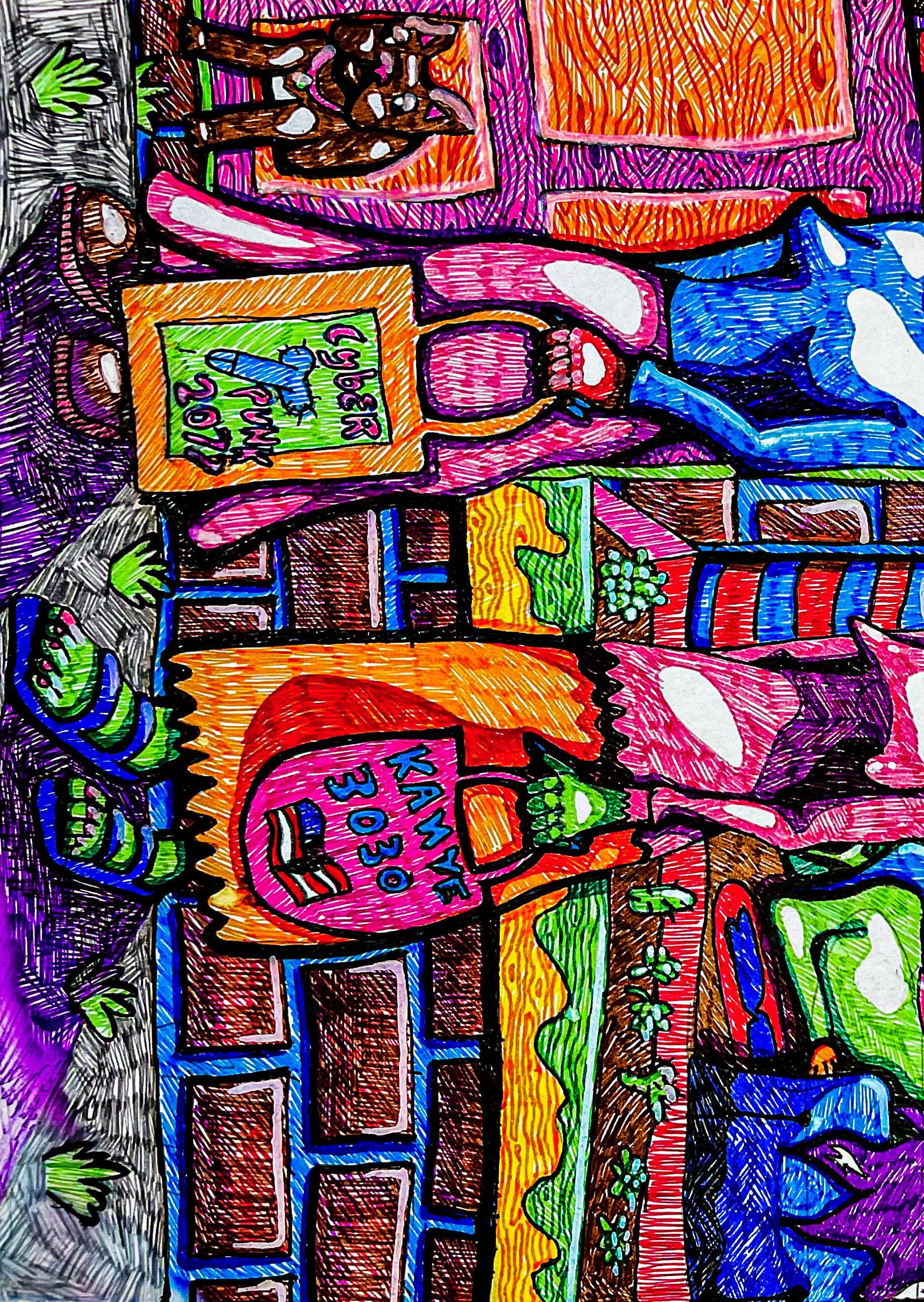


Pōneke, for all of its charms, is an incredibly expensive city to live in. Inevitably, a side hustle is a natural part of student life. For the most part, these jobs are chill. They can be balanced with the stress and mahi that is part-and-parcel of pursuing university studies. When I set out on my own hunt for a part-time job though, I kept running into ads for a job that seemed different than your typical student hospo or retail gig: driving buses.
Recruitment ads for bus driving are everywhere.
From signs on Metlink services, to a stand at the VUW Clubs Expo, promotional material for this campaign can be found all around campus. If you got one of VUWSA’s year planners from O-Week, you likely have one of these ads on your wall right now.
It’s all part of Tranzurban’s strategy to recruit a new batch of young drivers to get behind the wheels of Pōneke’s bus fleet. It’s no secret that Wellington has a serious bus driver shortage. Just turn on notifications for @MetlinkCancels on Twitter and you’ll probably want to throw your phone across the room, as a constant barrage of “BUS CANCELLED” lights up your lock screen. In October of last year, things got so bad that Metlink—in an effort to ease the uncertainty caused by buses being cancelled at the flip of a coin—temporarily axed more than 100 of their routes.
Tranzurban’s talent acquisition manager Helen Tickner told Salient that this latest campaign, 'Put the U in Bus', came about in conversation with some of Tranzurban’s younger bus drivers. “[Tranzurban] realised that we have a few younger drivers on our team,” she said, “and we’ve known for a long time that bus driving is not seen as a job for younger people.” Indeed, when asked whether they had considered bus driving as a career, a group of first-year students that I interviewed said, “It’s not a very exciting prospect for me”, “You do the same shit everyday”, and “I’ve crashed my car twice.” Tranzurban wants to change that narrative.
In developing the campaign, Tranzurban looked for guidance from one of their younger drivers, Ethan Hakopa. With the impact of the climate crisis becoming more apparent day by day, he said that part of his motivation to drive buses comes from a desire to make a practical difference for Pōneke’s public transport network. An environmentalist Hakopa said that driving has enabled him to “do even more to help the planet” by getting more cars off of the road, and knowing that he was helping people get to where they needed to go. He challenges the notion that bus driving is a very boring job, arguing that, “I think with pretty much any job you’re gonna get as a student, it's gonna be the same shit everyday, whether in a bar or in hospo.”
He said that, in public transport, “every day is different”, with new challenges and obstacles in the way of your very large, moderately fast office.
When asked about the commitment required from him in training and driving, Hakopa said that Tranzurban are supportive of student schedules, allowing them to work either before or after classes. Tickner echoed this sentiment, stating that they just need students to be “committed” and have “clear communication” about their situation.
In a way that is tangentially similar to a bus, this campaign has four 'wheels'. First, it aims to get young people excited about the prospect of driving buses as a career. As Tickner aptly put it, moving a 10 tonne hunk of metal around the narrow streets of suburban Wellington isn’t exactly every uni student’s cup of tea.
Related to this, the campaign's intention to “rebrand” what it means to be a bus driver. “People get excited about working at Air New Zealand,” she argues, so why not get excited about driving buses for the Metlink network? I think that both of these points are fair enough. Bus drivers are, obviously, a really important part of Pōneke. We students rely on their affordability and—broadly speaking—promptness to get around the region. Oftentimes, it can be a thankless job. But it is a highly important job. Any attempt to humanise our bus drivers, by highlighting people like Hakopa, should be commended.
The third and fourth “wheels” are, similarly, connected. First, the campaign aims to revitalise the bus workforce by bringing in newer, younger talent. Second, and maybe most importantly, the campaign is a way to respond to the shortage of bus drivers. In a press release, Tranzurban states that this campaign seeks primarily to “combat the bus driver shortage in the Wellington region”, and appeal to a “younger demographic”. However, questions can be raised about whether in a city whose young people rely on public transport to get around it is a good idea for the public transport network to rely on young people to prop itself up.
The bus driver shortage is by no means a Wellington-specific issue. Across the motu, bus companies like Tranzurban and NZ Bus are tackling the issue in an effort to, in the first instance, make sure that there are enough drivers to get people around our cities. Perhaps most importantly, all of these attempts to tackle this issue aim to ensure that we— as people that need good and frequent public transport— can trust that we won’t have to deal with spontaneous cancellations. Let’s hope that they get this right.
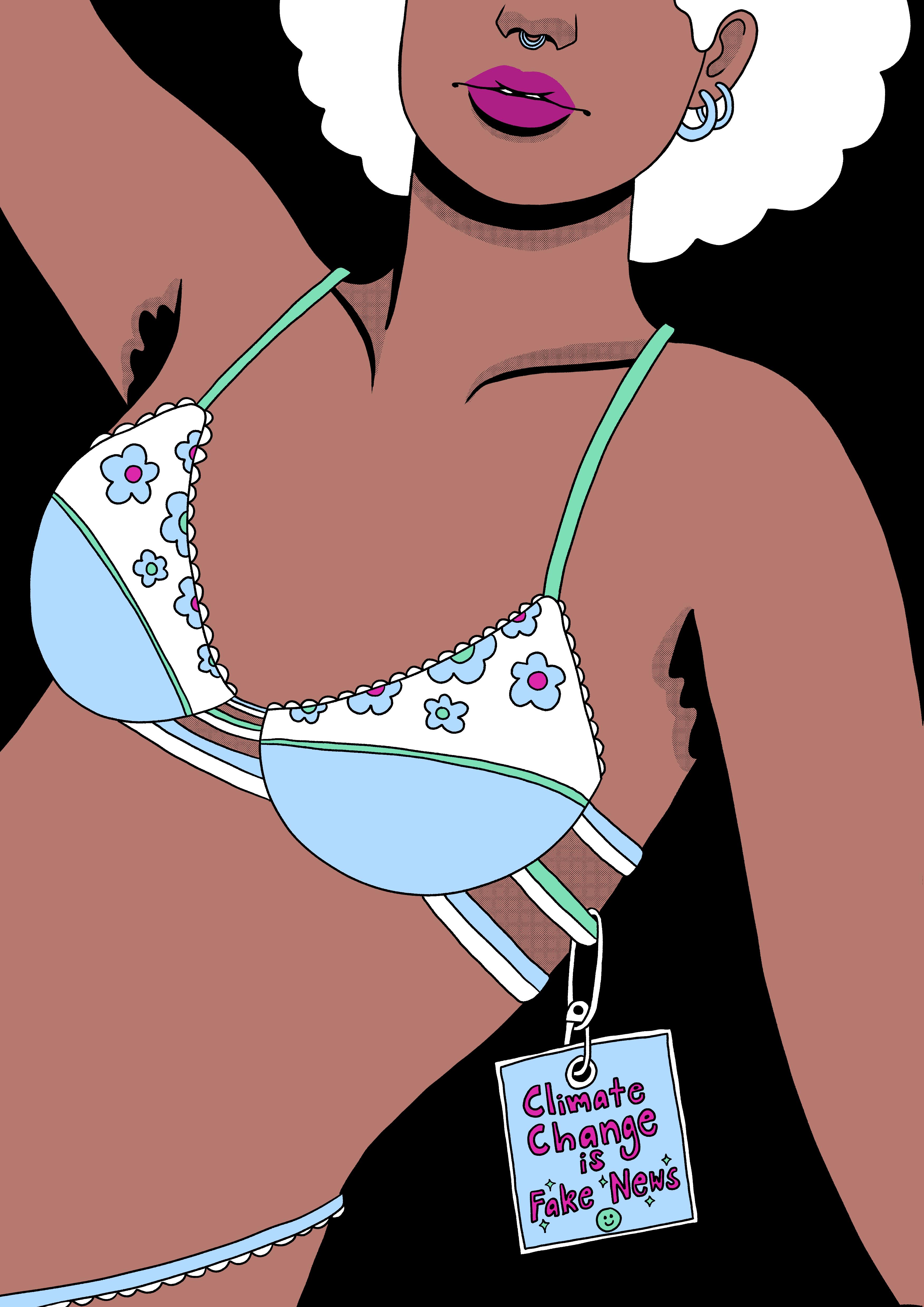
The café was boiling.
In a city powered by dining culture, Wellington’s southerlies are no match for its hospitality sector. On the rare occasion I wasn’t scaling thirty floors to campus, I still found myself wiping sweat from my face. Even the windows perspired; streaks of condensation were racing each other down the glass.
The café was so busy, it was hard to pick out anyone, let alone a man I’d never met. My only basis was his emailing: sprawling discussions of mindfulness with the odd note on the job I applied for. When replying, I typically leant onmy mum’s advice, to “just say yes.” I trusted that job would be worth it.
In truth, I was shocked to have made it this far. This brand-seeking retail staff had been fixed to my Instagram feed for years, I was more of a fan than a retail whizz. Known both for their lingerie and their rebellious ways of marketing it, their models did everything I was taught to avoid. Their skin folded over, their faces were bare. They didn’t smile but glared at the camera, like they’d been interrupted. They were beautiful, and totally unbothered. Beautiful without doing anything. It sounds cliché, but until I saw them, I didn’t know such a thing was possible.
Clearly, the brand knew how to advertise. I wanted everything the label produced, in hopes of gaining the models’ nonchalant power. But as a fresher at VUW, I was
more of a Cotton On Body five-for-$35 kind of gal. When the vacancy appeared, I applied knowing that mere months ago, I was still sweeping crumbs from a café floor. I took an interview with the co-founder as an achievement. He practically jogged towards me with a huge grin between a swarm of stubble.
So began the strangest job interview I’ve ever experienced. Like our emails, little was said of the role itself. The man simply bought three rounds of juice and discussed an imminent “new world”. About halfway through his spiel, he paused and said, “You’ve got the job, by the way.” I couldn’t tell you about the rest of the interview. My ears were ringing too loudly for me to hear it.
The ringing didn’t cease. If anything, it grew— humming through the cracks of my new double life. In my first week on the job, I made the split decision of agreeing to be called ‘Em’ by the operations manager. Never in my life had I gone by a nickname. But as time went on, the change seemed fitting.
From Monday to Friday, I was Emily the fresher who picked the skin off her fingers between classes. But when the weekend arrived, I began my metamorphosis. As sunlight crept through my first-year hall, I brought Em to life. She was mostly made from caffeine and thick layers of eyeshadow. She was removed enough from myself that I felt confident sending her to work. Helping people choose between the hundred-dollar bra and the
seventy-dollar briefs. Earned enough for the label in a day to feed herself for months. While Emily studied class inequity, Em learnt that some rich people are actually quite nice.
But it wasn’t just rich people who stopped by. In my two years as a fitter, I served people going through breakups, people who’d just given birth, and people needing gender-affirming pieces. These customers are sure to exist in every retail environment. My workplace was only one of few that made room for them.
In what became a shitty job fitting lingerie, the fitting-lingerie bit was never actually the problem. It was the co-founders’ ambiguity. They discussed what a terrible year 2020 had been without pinpointing what it was they didn’t like.
I originally perceived their goals of “transcending this world” as an odd but endearing show of optimism. Now, these words leapt from their emails with a newly threatening undertone. I assumed the founders’ vagueness would dissipate once I was employed. Months later, it had stuck. There were lies attached to this ‘honest’ brand.
My inklings were confirmed, of all places, outside Vic Books with a childhood friend. Gushing over the job, they winced at the brand I praised. When I questioned it, they shared what they knew. People were wary that a label self-promoting as ‘inclusive’ didn’t carry sizes above an NZ 16. There were murmurings as to why a male co-founder was responsible for marketing
and social media when the brand was so focused on women’s empowerment. There was anger when the brand stayed silent during an evident surge in violence towards BIPOC. I learnt that several models of colour had stepped away from the label entirely. They no longer wanted their bodies to be flaunted for diversity points without a hand being extended to the causes they championed.
Weeks later, my store manager called an impromptu meeting. The co-founder who interviewed me had been hacked, publicising his once-private Facebook posts. My manager wanted her staff to read his posts before everyone got a piece of them. As we passed an iPad between us, the source of his vagueness became clear. Not only were the founders anti-vax, they were antilockdown. Climate change deniers. One post argued that the Christchurch mosque attacks were a hoax.
All at once, my job’s security and fulfillment crumbled into uselessness. Now our founders’ beliefs were out in the open, I knew that a large portion of the company would leave. But I couldn’t afford to do that. I was in a new city, in my first year of uni, at the start of a rocky pandemic. After a slew of dead-end interviews and even more unread applications, one thing became certain. For Emily to finish her degree, Em needed to stay alive—at least for a little longer.
Still, I understood that the co-founder’s posts wouldn’t stay hidden for long. Aotearoa can be uncomfortably small at the best of times, and the label paying my rent was considered one of its finest.
When my operations manager warned us of a coming article on our founders, I braced myself.
It is near impossible to blame a brand. While we seek to hold someone accountable, a brand is a thing It has an identity, sure. But unlike living things, its body and mind are separate entities. Thus, front-facing staff are unimportant on all accounts except a brand’s image. They are not the brain, but something more vital: the eyes that observe, the voice that informs, the smile that persuades. If the brain forgets to inform the face, it does a damn good job of bluffing. Bottom line: no brand can exist in and of itself. People are its lifeblood. And after learning about the founders, people treated their brand like a person too.
A tsunami of frustration rippled through the store when our founders made the headlines. If you wanted to know their names, you’d have to click into the articles. But it was the brand that took front and centre. And not just any brand. One that took pride in being different from the rest. When the people who built this house of cards were found out, it toppled the whole deck. However, they were in LA at the time, making them unreachable. And so, people looked to what they thought was the next best thing.
For weeks, our phone lines were jammed with eager reporters, teary complaints, and verbal abuse. On a day I wasn’t working, a group clogged the store’s entrance, ‘protesting’ the founders’ beliefs by yelling and refusing to move. Guests already inside were unable to leave, and my colleagues only had a panic alarm to protect themselves. When the protestors left, I’m sure they felt
satisfied. But sadly, they’re no different to those who yell at checkout operators about the cost of milk (which, as an ex-checkout operator, I can attest that people do).
Exhausting retail staff didn’t lead to any changes. Even when the controversy hit its peak, the founders remained Covid-deniers. In fact, I think the backlash made them worse.
These days, I work in an office. It’s a job that is both engaging and relevant to my degree. The days start early, but I don’t mind. I get to enjoy the morning sun that leaks onto my desk, turning it amber as I read, analyse, and feel somewhat important.
Recently, I spotted a person putting up posters with an image I recognised. I looked closer. My old workplace was having a sale. I immediately heard Em’s voice in my head, apologising to guests because we never did sales. I wondered if the charm had officially worn off. I wasn’t exactly surprised.
A few months prior, when I visited my family in Auckland, I travelled to one of the brand’s stores to surprise my old colleagues. I found it gutted like a fish. A large sign was plastered to the front, screaming “FOR LEASE”. I thought of Em, 18, pounding the pavement, excited to work.
My ears stopped ringing.
Growing up, receiving a benefit meant having a personal, borderline invasive relationship with the government.
My family’s dependency on the government for survival would be twisted from short-term relief to an imposed routine that made you regret reaching out in the first place. I knew that Tuesday was payday, except when the money inexplicably didn’t arrive until the next day. I knew that the landline being engaged for over an hour meant Mum was still in the Work and Income (WINZ) phone queue, wondering why her payment had been reduced without any explanation.
I knew that the day I turned 18 would mean less money in our household. Apparently, the end of my secondary schooling translated to becoming one of the breadwinners of the whānau.
While the stress of engaging with government social services no longer rules over my family’s life, the shame of receiving financial support still feels as fresh as it did when I was 10.
In our society, receiving a benefit feels less like a decision made in times of need and more like a public branding of your worth. Our value as individuals is so predicated on hard work and meritocracy that asking for help is seen as the worst possible offence. But the stigma of being a ‘dole-bludger’ goes much deeper.
‘Dole-bludger’ derogatorily refers to those that receive unemployment benefits with no intention of seeking a job. Unsurprisingly, this staple within Aotearoa’s lexicon is packed full with some good old Kiwi racism. It’s often used to categorise minority groups and indigenous communities that receive benefits as ‘lazy’.
The laziness discourse surrounding beneficiaries isn’t new.
No desire to work? No sympathy. But when aimed at members of these communities, this apathetic justification has no consideration for the historical, cultural, and social disparities they’ve faced in becoming beneficiaries in the first place. Understanding the failure of our education system and labour market to address Māori needs, as well as the impact of intergenerational poverty and systemic racism on marginalised communities, gives a greater nuance to the fundamental reliance on financial support.
Of course, people from minority communities aren’t the only ones who receive government support. In fact, we all rely on the state in one way or another throughout our lives. So why is the harmful ‘dole-bludger’ narrative so persistent, especially from Pākehā?
Researcher Samantha Brennan suggests that the potency of Pākehā shame related to receiving social welfare challenges their perceptions of normality. Many Pākehā feel that receiving a benefit contradicts their privilege of having an advantaged social standing and the need to live up to it. The prevalent appearance of the “sorted, white family” intensifies judgement of those that don’t meet this standard as “abnormal or wrong”. Brennan credits the “ability of the dominant [Pākehā] culture’s norms to influence shame among other New Zealand subcultures.”
But cultural norms aren’t the only perpetrators of this stigma. The government, specifically WINZ, also have their hands in the cookie jar. The process of receiving a WINZ benefit is a complex, mind-boggling shitshow. To make things simple, think of it as a game of snakes and ladders—if that game was orchestrated by Jigsaw.
Start by sending in the mountains of paperwork required within their strict time limit to receive an unlivable income. Great job! Adhere to their draconian income threshold rules, and then discuss at length your nuanced circumstances with a different case manager each month. Well done! Decide to earn a little extra money to help you survive? Well, you now exceed their income limit by a few bucks. Too bad, no money for you.
For Anjali*, a former sole-parent beneficiary, WINZ’s implicit distrust and surveillance in their practices often left her feeling dehumanised. “If they made a mistake with your payments, you’d get a letter after the fact, saying they’re deducting your future payments, or cutting them off completely. No phone call or anything.” Anjali said that WINZ’s indifference to personal circumstances was mana diminishing. “[As beneficiaries,] we were all lumped together. It was just something you had to put up with.”
The sentiment of ‘something you have to put up with’ is a familiar one for students. Many withstand StudyLink’s requests for redundant information, long wait times, and dehumanising communication to receive a fraction of the money they actually need. But that’s what being a student’s all about, right? The romanticisation of a uni student’s financial struggle is a just cause for eventually reaching the top of the tax bracket, we’re told.
As Chlöe Swarbrick puts it, living in poverty “isn’t some cute cosplay”. For many students, the extent of the ‘I went through hardship too’ stigma from older generations prevents them from reaching out for lifesaving financial support. Too many of us fear being judged for not pushing through.
Not only that, but receiving a tertiary qualification doesn’t even guarantee us stable income. For Summer, a creative and former beneficiary, receiving the Jobseeker benefit between creative projects was a necessity. “I felt guilty for receiving a benefit when I already had my Masters. But if I hadn’t gotten Jobseeker, there’s no way I could have been a creative. The price of doing what you love comes with the social stigma of ‘being on the dole’.”
Needing help during a rough patch shouldn’t feel like a burden on society. However, as Summer puts it, “We need to redefine ways of contributing to society. Imagine the impact you can have on your community by contributing in ways that aren’t centred around work. Having more time for your whānau, being a support person, [our society] leans on each other in different ways. It’s important we acknowledge that.”
Our shaming of beneficiaries is really just a shameful reflection of our dated rhetoric. Earning an income isn’t the be-all-end-all of making a meaningful impact in society, and perhaps it’s time we go deeper in challenging this redundant belief.
*names have been changed
" Unsurprisingly, this staple within Aotearoa’s lexicon is packed full with some good old Kiwi racism."
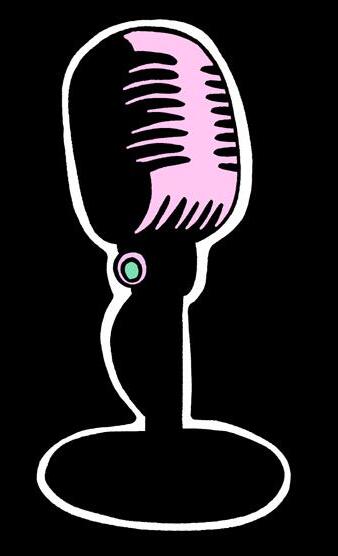
Words by the Salient Podcasts Team
If you're looking for your fix of podcasts to listen to while fighting with Metlink to get to classes, Salient Podcasts has you covered. We’ve got students from all over the university making shows that you're bound to fall in love with.

Stranger at Home explores the intersections between personal and national identity here in Aotearoa. Interviewing people from a variety of backgrounds and professions, the show engages in broader conversations about Kiwiness, and how identity and our relationships to the nation define our experiences here. Hosted by Alex and Gil, they bring their own specific interests and backgrounds to the table.

Psychology is widely discussed online, but academic research is often inaccessible to wider audiences. To bring that wealth of knowledge to audiences, host Sahir joins forces with a range of co-hosts to interview researchers about their specific study, locally and internationally! With this show, your smooth brain is guaranteed to develop an extra fold or two.
Rock Dog takes an eco-critical look at environmentalism in Aotearoa New Zealand, weaving together science communication and socio-political communication. Host Tharushi dives into the apolitical nature (get it) of environmentalism in the country, challenges those assumptions, and confronts our reliance on the environment and our unwillingness to change the status quo.


Michael and Ben used to love this city, but between work, university, and the pressures of the 21st century, Welly’s lost its shine. Join them as they rekindle their love for the city by shining a light on the underappreciated parts of the city, and by chatting to guests who share their specific fascinations with the place we call home.
Life’s all about being real, and FOR REAL? does just that. Hosts Liv and Gabi are besties, and they dive into their lives to share the reality of friendships, relationships, university life, drama, and learning from their experiences. So come down and get real, and maybe you’ll get a sick hat out of it too.


Salient Co-Editors Maia and Fran bring you the behind-the-scenes inspiration (and drama) behind each week’s issue of Salient. If you’re looking for landlord rants, e-bike recommendations, or even serious chats with politicians, look no further. Maia and Fran have got you covered.
Who knows anything about politics? The economy is confusing, every party seems to want your vote more than they want to actually change anything, and 2023 is an election year. To help guide you into the world of politics as October nears are Hollie and Xandi, bringing you your weekly fix of political know-how.

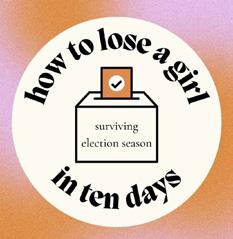
I don’t like hustle culture.
Don’t get me wrong, I love hard workers and pushing yourself to do well. But if hustle culture was a cookie, it’d be a Griffin’s Mint Treat biscuit. Hustle culture to me is a vulture just praying on your downfall.
The whole idea of hustle culture is about being a human doing, rather than a human being. Your mind and body do not know rest. Finish your 9 to 5 and start your side hustle, work that 12-hour shift. Oh, they need someone to cover the next one? Let’s do it.
The self-improvement community has convinced us that for the low, low price of our time and mental capacity, we too can have a chance at millionaire status. But that just ain’t true. Working long hours and loading your time with side hustles may have monetary rewards, but the rush of ‘getting it all done’ makes us lose sight of what we were really working hard for in the first place. We straight up ignore our physical, mental, and emotional limits and become slaves to the capitalist machine.
I just wish people realised that you can still be a #girlboss without slaving yourself away. We may not say it, but deep down, hustle culture has ingrained a mentality in us where we just
compare ourselves to each other, trying to win. I don’t like it. Overworking yourself will not always lead to success. If anything, just burnout.
But I get it—many of you will disagree because of the success story you’ve heard. Just remember, for every success story there are a vast majority of people who have crashed and burned out.
Hustle culture is selfish. You are doing what you can to one up yourself and get yourself to the end zone, no matter how many people you snub on the way up.
In Te Ao Māori, it just don’t work like that. What we do, we do for our whānau, our hapū, our iwi, you name it. Every step forward I make is a step forward for the community, and my people as well. Every reward is a reward, my people will reap as well.


I just don’t run on hustle time, I run on my own time. I’m in my soft girl era and I’m not mad about it. I do what is needed of me; I give my energy and time to things that I’m passionate about—things that aren’t taxing on me. Time is the most important currency, and you know damn well hustle culture does not respect that. But I do, and most of all, I respect myself.
So, f*ck hustle culture.
I can't help but give my number out to random guys. I have no intention of dating them, but I let them buy me free drinks. I'm in a long term relationship. How do I stop being an attention whore?
First off, props to you. Seriously, you’re out here doing the most. Flirting, getting numbers and free drinks? Teach me your ways. Any single soul out there would love to possess your aura on a night out. I don’t think I’ve ever given anyone my number, nor have I flirted my way to a free drink.
Second of all, stop calling yourself an attention whore. What you are is a successful flirt.
My gut reaction is that you’re seeking attention, validation, and some overall special spice that may not be present in your current relationship. Are you satisfied with your relationship? What is it that you gain from these interactions that your relationship isn’t providing? Sit down and think about whether or not you actually want a relationship. By the sounds of it, you don’t. And that is okay. You don’t have to be 'university sweethearts' like your aunt and uncle. God, you’ve only been on this planet for what, 20 years?
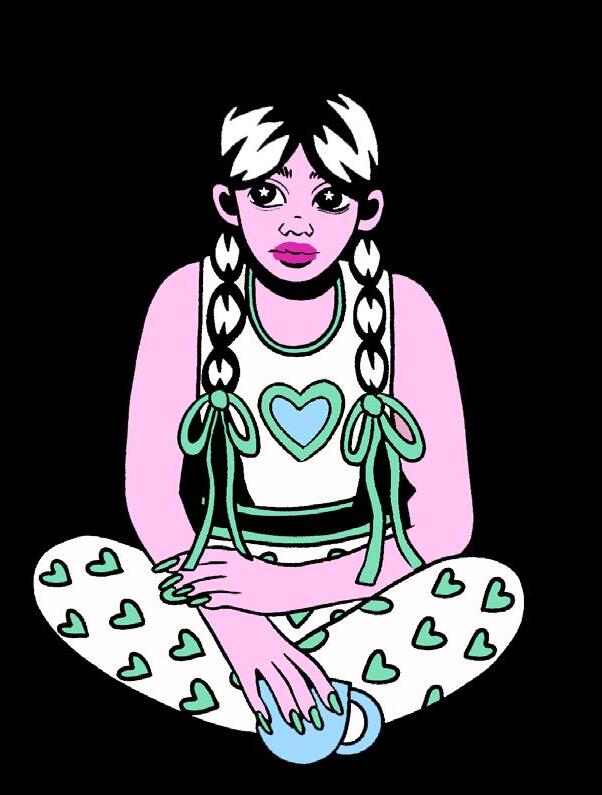
What is not okay is your disloyalty to your partner. I’m assuming they have no idea about your escapades. Now, this could be presumptuous. You might be in an open relationship, but I doubt this whole scenario would be an issue if you were. Think about it from your partner’s perspective. Do you think they’d want to be in a relationship with someone who’s chatting up bros at the bar? Probably not.

.A.QYou’ve probably been in denial about ending your relationship for a while, brushing those feelings under the rug. Understandable queen, your person may be kind, funny, loyal—they might tick every box under the sun. You’d be an utter idiot if you threw this person away?! Right?!
Wrong. Just because they’re your type on paper, doesn’t mean that they’re adding extra value to your life. Maybe you have grown as much as you can with this person, and now it’s time to grow alone. Being single, especially at this age, is essential for growth and self-discovery.
If you reflect on your relationship and decide it's not making you happy, nor adding any pzazz to your life, it’s actually kinder to end it. Your partner deserves someone who loves them wholeheartedly, and you deserve the freedom you desire.
If you end things, I promise you, the world won’t end for either of you. It’ll be very difficult for a few hours, days, weeks, months. But they will recover. They will move on. It’s like The School of Life. Alain de Botton says, “There is a difference between being kind and seeming kind. To stay with a person because we want to avoid a few hours of uncomfortableness is no favour to them, especially if we go on to be bitter, distant, and mean. Real kindness means getting out.”
In conclusion, stop shit talking yourself. Exploring your options doesn't make you an 'attention whore'. It means you’re a confident conversationalist who gets what they want! You’re allowed to want more excitement and to feel free, just don’t do that at your partner’s expense! If your relationship is no longer fulfilling your needs, that is okay. Life is too short to be held back.
Words by Charlie Shirreffs (they/them)
How do you want something you have no name for?
I think of the Greeks and their wine-dark sea, distinguished from the metal of the sky but the word for their similarity a thousand years away. I think of kikorangi, blue-sky, and māwhero, white-red, one colour extant in the land of the long cloud and the other lying dormant, the tongue wanting not for the shape but the intent. The name for the colour between blue and black, which we stole like stowaways from seafaring and have yet to return. Pink and purple and orange are of the seventh class of colour morphemes, laying stranger in the mind and the mouth than their primary sisters; how would it feel to watch a sunset without the words for what it makes of the sky?
To see you for the first time in a year and realise I still puzzle over how to describe the colour of your eyes? Or must desire be named, articulated – is it not enough to understand?
Your usually annoying habit of talking over people is paying off. You’ll be winning debates with drunk racists at parties and getting an A on any oral presentation this week. Proud of you babes!
Your image is screaming ‘rebellion’. You’ll probably be chopping a fringe through blurry, angry tears, yet somehow making it work. You want a piercing but getting your septum done is “too typical”. Uvula piercing, lets go!
One of your friends has a birthday coming up, and at their party the best conversation of your life awaits. It’ll be with a friend of a friend, who’s off their face but shares the same niche opinion with you on the Love Island finale.
I see you Cancer. You can’t hide from me. Over the weekend you had a bad trip. I’ll be honest, you ruined everyone else's night out. But the good news is that you’ve been sent on a spiritual journey. Whatever you saw has changed your life.
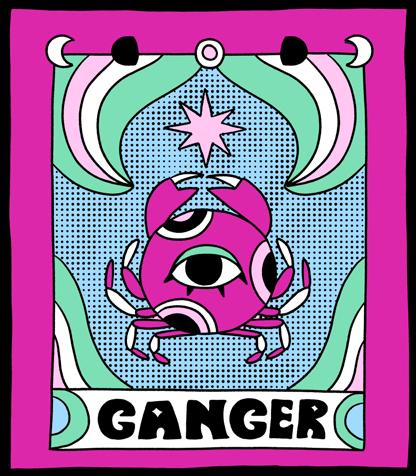

The universe has been making you feel left out. Great things have been happening to your friends. One just secured a dream flat, and another a dream date. It’s okay, Leo. Your time will come. You just need to be patient.

Virgos, I hear you. I’ll write more positive horoscopes for you, just remember I can’t actually move the planets. But if you think I’ve been mean to you, you should read the shit I say to Scorpio every week. Xoxo, a sincere Virgo-apologist.

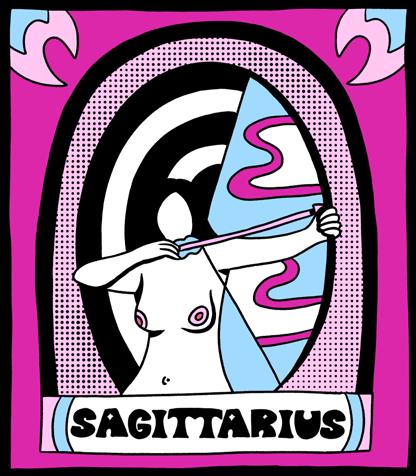
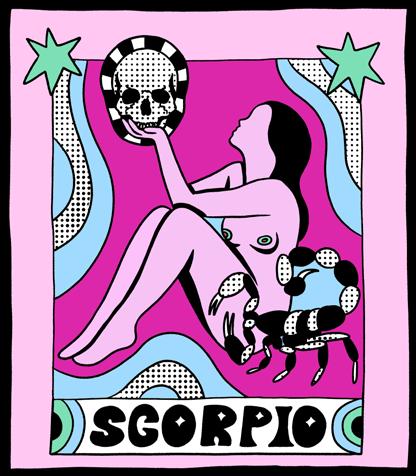

The astrological energy that’s making Taurus’ fringe look good, is making yours look… bad. I’m sorry! This just isn’t the week to experiment with your look! Well, maybe you can, but it'll be more of a learning moment than an actual slay.
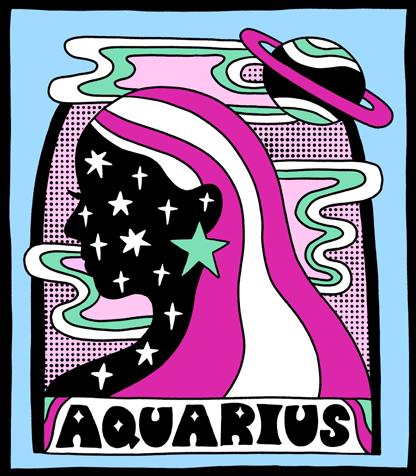
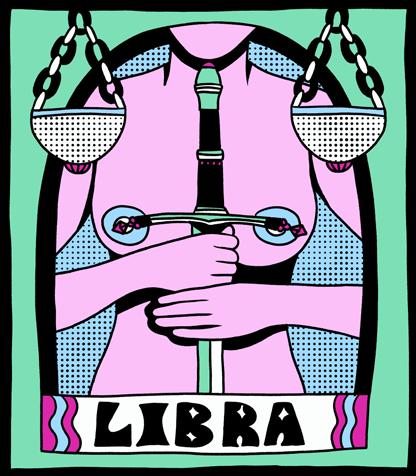
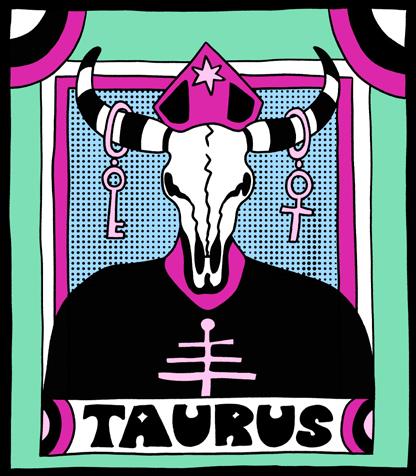
Ugh, I know that you don’t want to hear this but I’ll say it anyway. It sucks that things aren’t working out in your dating life, but it’s for the greater good. Your energy needs to go towards other things. You’ll feel better soon.
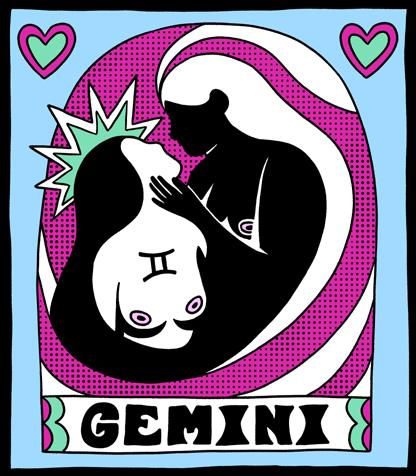
Uh-oh, it’s time for the dreaded situationship talk again. We all fucking hate it, but you’ve been seeing this person for months and still don’t know what they want. You’re a big kid now. Stop being scared and ask “what are we?”
Oh my god. This is falling in love with your childhood best friend energy! This is the return of a long lost love! Capricorn, you’re channelling your inner wattpad y/n, and it’s so adorable. How does it feel to live my dream?
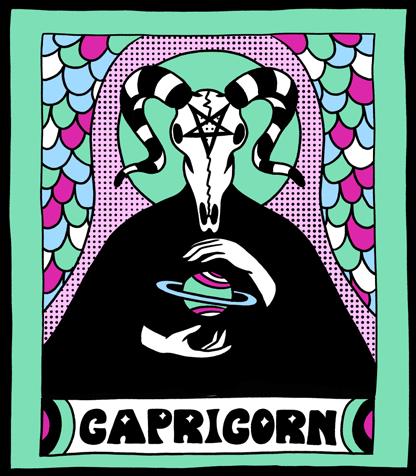
I appreciate seeing you work so damn hard. I’m tired just looking at you. Just remember that there’s no point picking up extra shifts that make you so tired you have to spend all your extra money on convenience.
You’re unable to spend time on things you usually enjoy. Actually, that’s bad phrasing: you’re spending less time with your vices. I’m a little impressed. You Pisces usually struggle with self discipline, but you’ve been doing well!
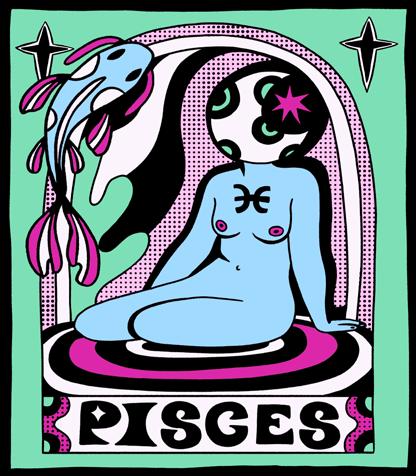

We need to call Posie, and Kimberely, and their ilk, what they actually are. And that is, transexclusionary rightwing dropkicks. T-E-R-D-S.
They're not terfs, they are terds.
Nic McKim, Greens senator for Tasmania, condems Kellie-Jay Keen (aka Posie Parker) for attacks on his partner and his trans stepson.
1. It's a very one-sided kind of thing? (6,5)
7. Dobby or Elrond, for example (3)
9. Makeup of a conspiracy theorist's hat (7) *
10. My star sign, being born midway through November (7)
11. Setting for Persepolis (both the graphic novel and the World Heritage site) (4)
12. Supported, as steel or concrete (10) *
14. Salmon, blueberries or dark chocolate, famously (5,4) *
20. Ally together (4,6) *
22. Site of a famed experiment by Galileo (4)
24. The Jarague lizard is the world's smallest (7)
25. What you might call your family if you were a Viking or a 7-Across (7) *
26. Term of address for Gawain or Mix-A-Lot (3)
27. What an anonymous source might give you... or a hint to what's hiding in the answers to the starred clues (6,5)
1. Epic; of ancient fiction (6)
2. It might grow on driftwood, in a form known as sharimiki (6)
3. Second word of many fairy tales (4)
4. Composer Antonio who some say poisoned Mozart (his name is an anagram of ISRAELI) (7)
5. Amber or shellac (5)
6. Set of behaviour-governing rules, commonly used in the names of climate treaties (8)
7. Await; anticipate (6)
8. Inundates; swamps (6)
13. Art form that is apparently only respectable when signed by Basquiat or Banksy (8)
15. Flipped out (7)
16. Scandinavian inlets (6)
17. Clothing fastener with teeth (6)
18. It's fastened with an obi (6)
19. Support; go into reverse; save a copy of (4,2)

21. Smells really bad (5)
23. Concludes (4)

✦ NGĀ MIHI ✦
CO-EDITOR
CO-EDITOR
DESIGNER
CHIEF REPORTER
SUB-EDITOR
SENIOR STAFF WRITER






STAFF WRITER
ARTS & CULTURE WRITER
Phoebe Robertson (she/her)
Jamie Clumpas
Ben Kiriolo (he/him)



William Bell-Purchas (he/him)
Ella Hoogerburg (she/her)
Emily Payne (she/her)









Joanna Fan (she/her)
Charlie Shirreffs (they/them)

Areta Pakinga (she/her/ia)
Ethan Rogacion (he/him) Puck (Cross/Word)
